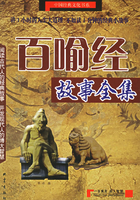Thus far we have seen that the savage, failing to discern the limits of his ability to control nature, ascribes to himself and to all men certain powers which we should now call supernatural. Further, we have seen that, over and above this general supernaturalism, some persons are supposed to be inspired for short periods by a divine spirit, and thus temporarily to enjoy the knowledge and power of the indwelling deity. From beliefs like these it is an easy step to the conviction that certain men are permanently possessed by a deity, or in some other undefined way are endued with so high a degree of supernatural power as to be ranked as gods and to receive the homage of prayer and sacrifice. Sometimes these human gods are restricted to purely supernatural or spiritual functions. Sometimes they exercise supreme political power in addition. In the latter case they are kings as well as gods, and the government is a theocracy. Thus in the Marquesas or Washington Islands there was a class of men who were deified in their lifetime. They were supposed to wield a supernatural power over the elements: they could give abundant harvests or smite the ground with barrenness; and they could inflict disease or death. Human sacrifices were offered to them to avert their wrath. There were not many of them, at the most one or two in each island. They lived in mystic seclusion. Their powers were sometimes, but not always, hereditary. A missionary has described one of these human gods from personal observation.
The god was a very old man who lived in a large house within an enclosure. In the house was a kind of altar, and on the beams of the house and on the trees round it were hung human skeletons, head down. No one entered the enclosure except the persons dedicated to the service of the god; only on days when human victims were sacrificed might ordinary people penetrate into the precinct. This human god received more sacrifices than all the other gods; often he would sit on a sort of scaffold in front of his house and call for two or three human victims at a time. They were always brought, for the terror he inspired was extreme. He was invoked all over the island, and offerings were sent to him from every side. Again, of the South Sea Islands in general we are told that each island had a man who represented or personified the divinity. Such men were called gods, and their substance was confounded with that of the deity. The man-god was sometimes the king himself; oftener he was a priest or subordinate chief.
The ancient Egyptians, far from restricting their adoration to cats and dogs and such small deer, very liberally extended it to men. One of these human deities resided at the village of Anabis, and burnt sacrifices were offered to him on the altars; after which, says Porphyry, he would eat his dinner just as if he were an ordinary mortal. In classical antiquity the Sicilian philosopher Empedocles gave himself out to be not merely a wizard but a god. Addressing his fellow-citizens in verse he said:
O friends, in this great city that climbs the yellow slope Of Agrigentum's citadel, who make good works your scope, Who offer to the stranger a haven quiet and fair, All hail! Among you honoured I walk with lofty air.
With garlands, blooming garlands you crown my noble brow, A mortal man no longer, a deathless godhead now.
Where e'er I go, the people crowd round and worship pay, And thousands follow seeking to learn the better way.
Some crave prophetic visions, some smit with anguish sore Would fain hear words of comfort and suffer pain no more.
He asserted that he could teach his disciples how to make the wind to blow or be still, the rain to fall and the sun to shine, how to banish sickness and old age and to raise the dead. When Demetrius Poliorcetes restored the Athenian democracy in 307 B.C., the Athenians decreed divine honours to him and his father Antigonus, both of them being then alive, under the title of the Saviour Gods. Altars were set up to the Saviours, and a priest appointed to attend to their worship. The people went forth to meet their deliverer with hymns and dances, with garlands and incense and libations; they lined the streets and sang that he was the only true god, for the other gods slept, or dwelt far away, or were not. In the words of a contemporary poet, which were chanted in public and sung in private:
Of all the gods the greatest and the dearest To the city are come.
For Demeter and Demetrius Together time has brought.
She comes to hold the Maiden's awful rites, And he joyous and fair and laughing, As befits a god.
A glorious sight, with all his friends about him, He in their midst, They like to stars, and he the sun.
Son of Poseidon the mighty, Aphrodite's son, All hail!
The other gods dwell far away, Or have no ears, Or are not, or pay us no heed.
But thee we present see, No god of wood or stone, but godhead true.
Therefore to thee we pray.
The ancient Germans believed that there was something holy in women, and accordingly consulted them as oracles. Their sacred women, we are told, looked on the eddying rivers and listened to the murmur or the roar of the water, and from the sight and sound foretold what would come to pass. But often the veneration of the men went further, and they worshipped women as true and living goddesses. For example, in the reign of Vespasian a certain Veleda, of the tribe of the Bructeri, was commonly held to be a deity, and in that character reigned over her people, her sway being acknowledged far and wide.















